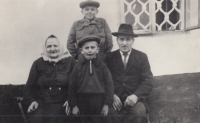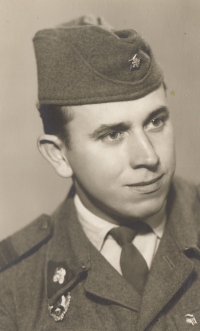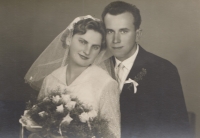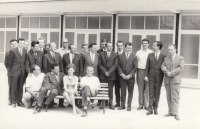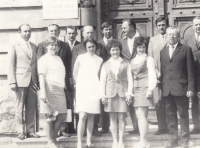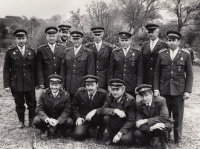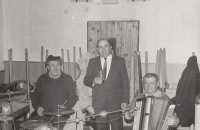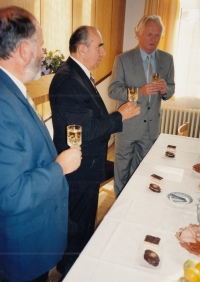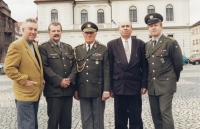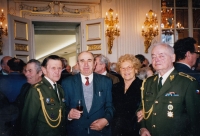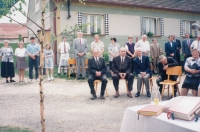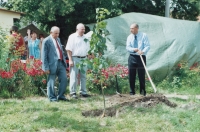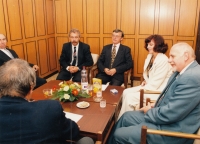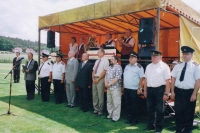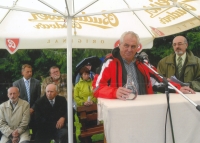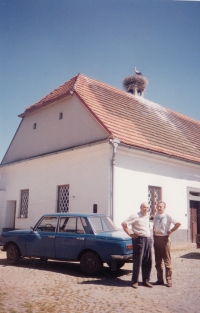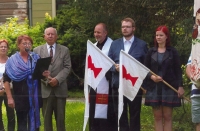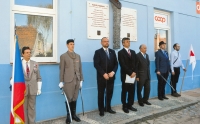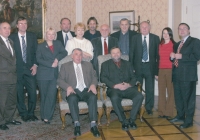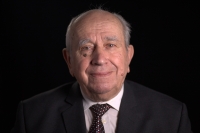I have worked for the public, perhaps even done good
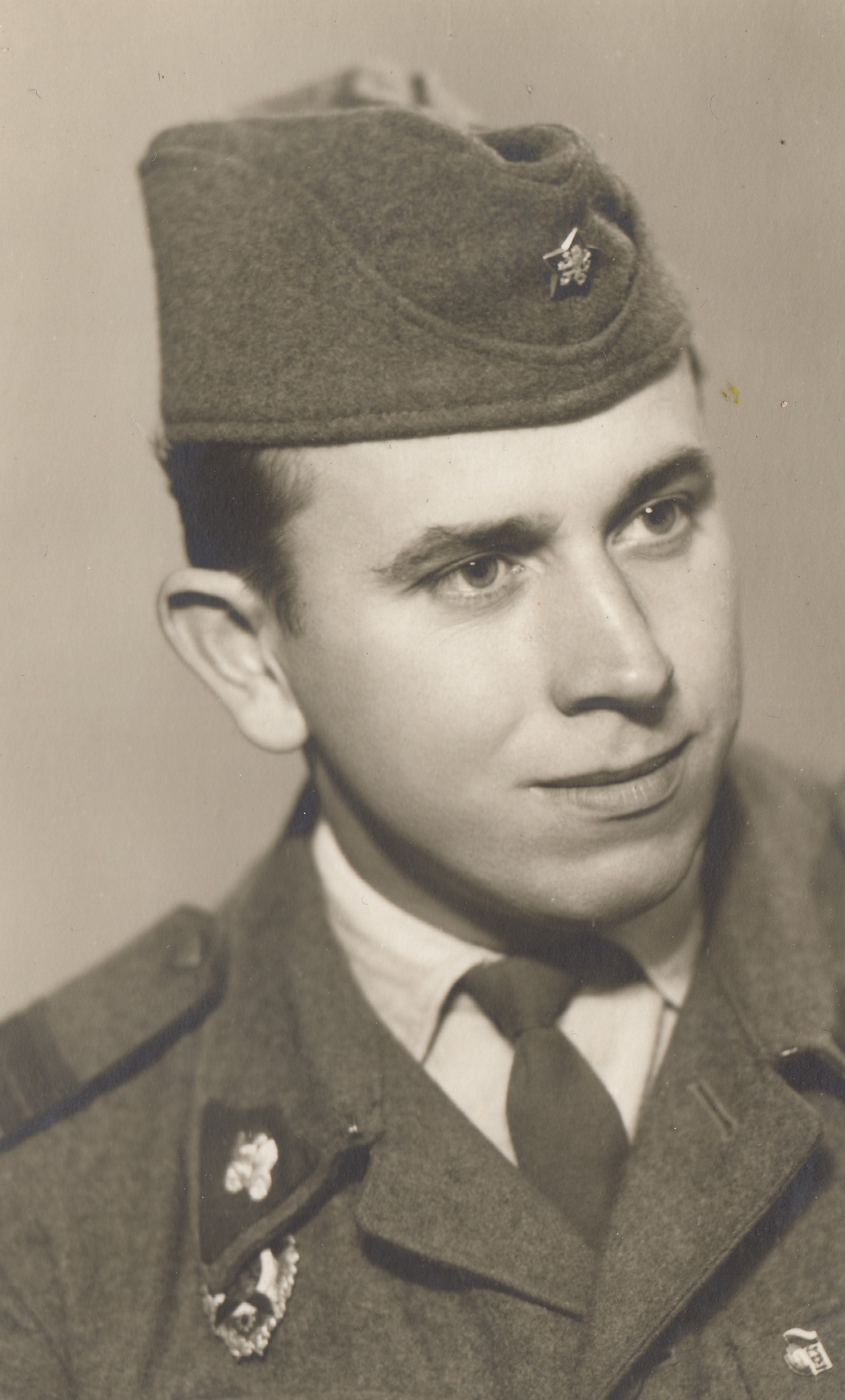
Download image
Josef Kalbáč was born on 17 February 1940 and grew up on a farm in Třebohostice near Strakonice, where the family has lived for more than three hundred and sixty years. His parents Josef and Marie were among the biggest farmers in the village, with more than twenty hectares of land. His ancestors were active in public life, his great-grandfather and grandfather were both mayors of Třebohostice, his grandfather founded a credit union and a fire brigade. When a unified agricultural cooperative was established in Třebohostice in 1956, the witness’s parents joined it because they were afraid of being evicted from the village. His father rode horses in the cooperative and his mother worked in the cowhouse. Josef Kalbáč wanted to go to the forestry school, but as the son of a kulak, moreover from a religious family, he was not allowed to study. So, he joined the cooperative like his parents, helped build the cowshed and the poultry farm, then drove a truck and finally worked in the cooperative as a mechanic. In the sixties he was offered to complete his education, went to the Secondary Agricultural Engineering School in České Budějovice, completed his maturita exam at the Secondary Agricultural Technical School in Tábor and entered the Agricultural College in České Budějovice, studied phytotechnics and graduated in 1972. From 1976 to 1990 he worked at the Radomyšl agricultural cooperative as an agronomist. In 1968 he joined the People’s Party, was chairman of its local organisation in Třebohostice, and worked in its district and regional committee. In spring 1989 he was elected chairman of the Strakonice district committee of the People’s Party. After the revolution in 1989, as a representative of the People’s Party, he participated in the so-called round tables of the political parties of the time, where personnel changes were discussed. For the People’s Party he was co-opted to the Strakonice District National Committee. In 1991, when district offices were established instead of district national committees, he was appointed deputy head of Strakonice and head of his office. From 1997 to 2002 he was the head of the Strakonice district office. Then he briefly headed the Strakonice branch of the Office for Government Representation in Property Affairs (ÚZSVM). In 2003 Josef Kalbáč became a senator for the Strakonice district. On 9 February 2008, during the presidential election (it was between Václav Klaus and Jan Švejnar), he was threatened by an unknown man in the toilet and then senator Josef Kalbáč went to the hospital in Strakonice. He voted for Václav Klaus in the second presidential election. In 2008, he was defeated by ČSSD candidate Miroslav Krejča in the fight for the senatorial seat. After his Senate defeat, he became an advisor to President Václav Klaus. Josef Kalbáč still has an office in Strakonice, advises mayors on how to obtain subsidies, and speaks at public events and lectures. The folk songs he collected are gradually being published in songbooks - he recently presented his fifteenth songbook.
